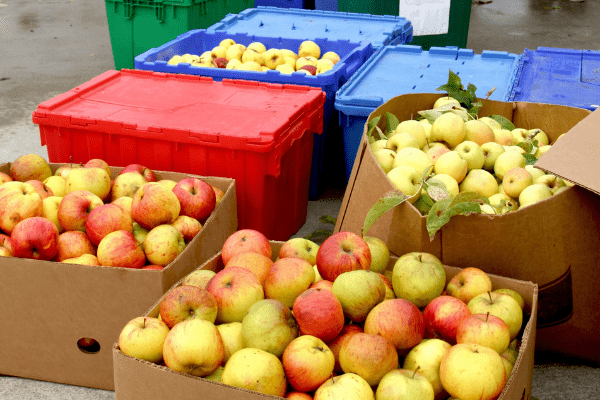This Wednesday, which happens to be International Day of Awareness of Food Loss and Waste, the Belgian food bank federation has called for the Federal Government to put in place financial incentives to encourage food donations.
Currently in Belgium, companies that donate food can reclaim VAT – 6% in this case. But to encourage more donations, the federation has proposed a system similar to that in France, where taxes are reduced according to the monetary value of the food donated, accounting for storage and transport as well.
Food banks have also signed a charter with Fevia – the federation that represents Belgian food companies – to encourage agro-food companies to commit to donations on a more regular basis.
For years food banks have been fighting food waste; in the first half of 2021 over 6,ooo tonnes of unsold food products were distributed each month to more than 175,000 beneficiaries via a network of associations.
Related News
- Food waste: How can it be reduced in the EU and globally?
- Misinterpretation of expiry date labels resulting in food waste
- ‘Need remains very high’: 12,000 meals distributed a day in Wallonia
As with so many businesses and associations, food banks have been rocked by the pandemic – so much so in fact, that they had to buy over 1000 tonnes of food in 2021 to meet demand. This exceptional measure was assisted by governmental aid. Nonetheless, food banks are still struggling to provide for all those in need, hence the call for a financial stimulus to promote donations.
The federation stresses that donations are not only a means of ensuring that the most deprived sections of the population do not go hungry, they are also an effective way of combatting greenhouse gas emissions from food that would otherwise be left to rot. Furthermore, they relieve strain on some agricultural sectors and water supply.
Globally, 14% of food products are wasted between harvesting and distribution.
The Brussels Times

